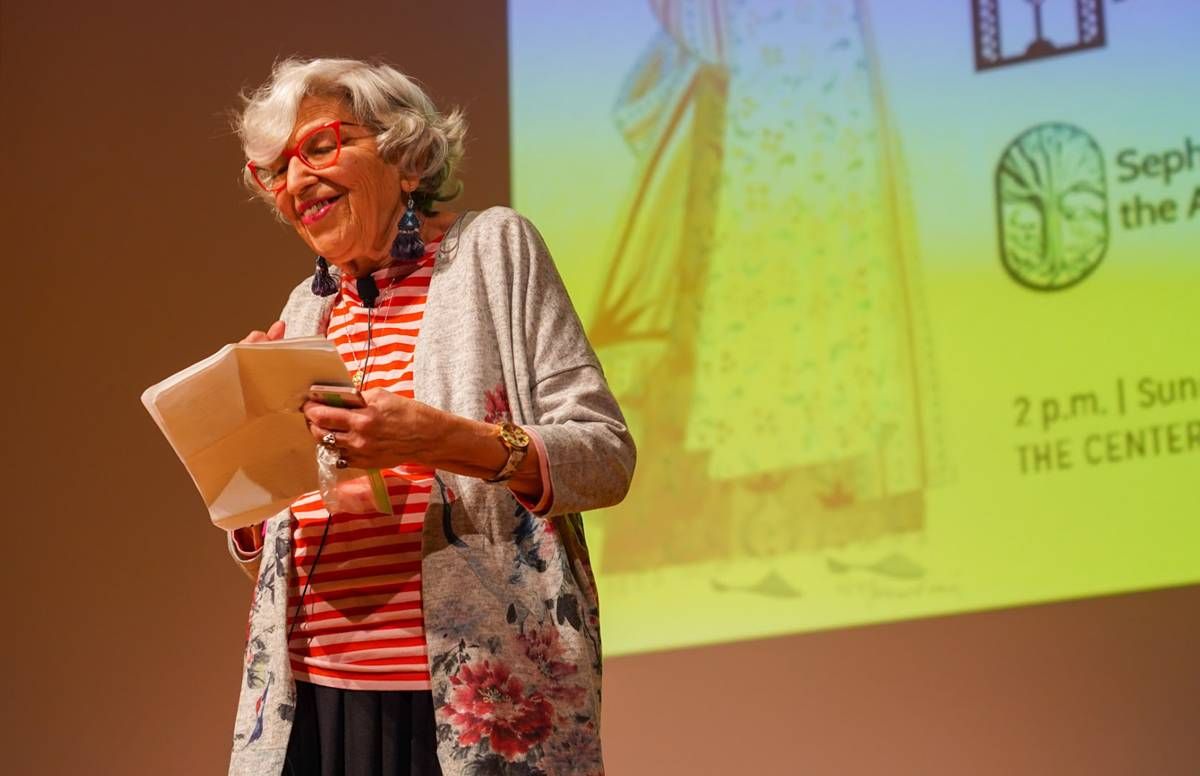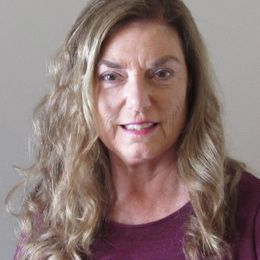Facing 80: Keeping an Ancient Language Alive
Gloria Ascher's love for Ladino, music and poetry are her sources of energy
When she was growing up in New York, Gloria Ascher was eager to learn Ladino, the Judeo-Spanish language her parents brought from Izmir, Turkey.

“Teach me that song,” Ascher would say to her mother, who didn’t encourage the language that she told her daughter, “… isn’t even real Spanish.”
Ladino is the language of the Spanish Jews who were expelled from Spain in 1492 and migrated to more welcoming lands. Ladino, also called Judeo-Spanish, is based on Spanish with words from Hebrew, Turkish, Arabic, French, Greek and Italian.
Ascher’s love for Ladino and her determination to keep it alive is one of the sources of energy that continues to fuel her past her 80 year (she just turned 81 this month) and into the years ahead.
Ascher is thankful she had the “gift of teaching” for many years as an associate professor of German, Scandinavian and Judaic studies at Tufts University in Medford, Mass. (through the fall of 2017), where she also taught a course on Ladino language and culture.
In January, she was a speaker for the 2020 International Ladino Day in New York City, sponsored by the American Sephardi Federation. Ascher also considers writing songs and poems one of her most satisfying creative endeavors.
A Rare Ladino Teacher
I was led to Ascher by a chance mention of the word “Ladino” in 2010 when I was in San Francisco doing a story about a man who launched a Cajun music festival. A musician in a Creole band said to me as I was leaving, “You should do a story about Ladino.”
I returned home to Providence, R.I., where I was living at the time, and began researching Ladino. I discovered it was a UNESCO (United Nations Educational, Scientific and Cultural Organization) endangered language because of the decreasing number of native speakers.
Ascher was one of the rare Ladino speakers who taught the language at a university. What good fortune that Ascher was so close to Providence. I first met her in her office, where she sang a song about Hanukkah she'd written in Ladino. Then I sat in on her Ladino class.
While continuing to teach Ladino is one of the bright spots in Ascher's life, she has encountered dark times.
The more I learned about Ladino, the more I realized the gap in my knowledge of world history. An elementary school phrase echoed in my mind: “In fourteen-hundred-ninety-two, Columbus sailed the ocean blue.” Never a word about the expulsion of the Jews from Spain in that same year. I’m Jewish, my family came from Eastern Europe and my grandmother spoke Yiddish, and I had never heard of a Judeo-Spanish language.
A while after I met Ascher, I took her Ladino class. Our textbook was A Course in Judeo-Spanish (Ladino) for Beginners, written by one of the best-known Ladino writers, Matilda Koen-Sarano, and translated into English by Gloria Ascher.
Finding Bright Spots in Life
Now a "professor emerita," Ascher, who lives on Cape Cod, describes herself as “an independent teacher” of Ladino. She’s currently teaching a student whose grandfather speaks Ladino.
While continuing to teach Ladino is one of the bright spots in Ascher’s life, she has encountered dark times.
Her longtime friend and housemate died in 2019. Ascher, with her “spiritual but not extreme” perspective, found a hopeful sign when a monarch butterfly arrived at her friend’s gravesite. In the weeks afterward, images of butterflies began to land in front of Ascher, including on the cover of a local magazine with a story about an exhibit on monarch butterflies.
“To me, that meant there’s still beauty and joy and meaning,” says Ascher, who gives herself “pep talks” about ways to be happy. She cares for her beloved little “doggie,” a black dachshund named Joseph. She had both hips replaced in 2018 and says that’s allowed her to “reclaim the water” by being able to walk on the beach and go into the ocean.
"I have a block against numbers. They put you in a category," says Ascher. "I'm not a number. I'm a creature of God."
She has enjoyed going to the “artist shanties” on Cape Cod, where she picked out a piece with a design that included a seashell. The artist pointed out the saying on the piece: “Every life leaves something beautiful behind.”
Asked about her 80 birthday, Ascher says that on April 2, 2019, she celebrated “having lived 80 years, grasias al Dio. (thanks to God) I even had a surprise birthday party, beautiful and touching, with wonderful people and beautiful food.”
"I'm Going on 200"
However, when it comes to years and categories, Ascher says society often uses labels out of convenience, and believes it’s important that labels don’t distract from the essence of the person.
“All I’ve done is completed eighty years of life,” she says, offering the Ladino word for birthday, "kumpleanyo" which means "completed the year." She says a Sephardic phrase emphasizes “Los anyos son del Dio,” which means, “Years are from God.”
“I have a block against numbers. They put you in a category,” says Ascher. “I’m not a number. I’m a creature of God.”
Before she had hip surgery, Ascher used a walker for a while, which seemed to spur people to ask her age. One time, after being annoyed at such a query, she came up with a possible response: “I’m going on two hundred.”
Sephardic tradition also contributes to her perspective that, “I’m not a planner.” While she obviously spent years planning university courses and other activities, Ascher views detailed planning about life differently.
She believes that God has a lot to do with the future and “planning is not really our thing. You don’t know what’s going to be in five years.”
However, Ascher does have many things in mind for the future. She never had a driver’s license, because as a teenager in New York, she took the subway. She started driving lessons after hip surgery, but they were interrupted by cataract surgery. So, now she wants to get back to lessons and get her license.
Ascher says she will continue to focus on the many things that bring her joy — friends, nature, the sun, the ocean, writing poetry, writing songs and singing.


